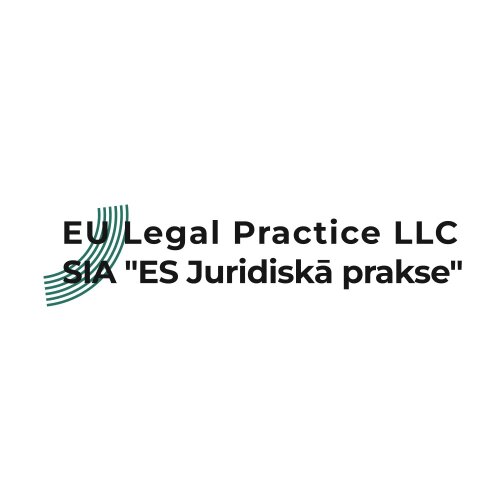Best Bankruptcy Lawyers in Latvia
Share your needs with us, get contacted by law firms.
Free. Takes 2 min.
Or refine your search by selecting a city:
List of the best lawyers in Latvia
About Bankruptcy Law in Latvia
Bankruptcy in Latvia is governed by a comprehensive legislative framework aimed at addressing insolvency and financial distress faced by individuals and businesses. The process is designed to provide a fresh start for debtors while ensuring that creditors receive fair treatment. The key legislation is the Insolvency Law, which sets out the procedures for both personal and corporate insolvency proceedings. This law seeks a balance between debtor relief and creditor rights, providing structured processes for debt settlement and asset liquidation when necessary.
Why You May Need a Lawyer
Navigating bankruptcy proceedings can be complex and daunting, especially for those unfamiliar with legal jargon and procedures. Here are some common situations where legal help might be necessary:
- Assessing Eligibility: Determining whether you meet the criteria for personal or corporate bankruptcy.
- Preparing Documentation: Compiling the necessary financial documents and filings required by the court.
- Negotiating with Creditors: Facilitating discussions and settlements with creditors to potentially avoid bankruptcy.
- Representing in Court: Advocating on your behalf during court proceedings to ensure your interests are protected.
- Exploring Alternatives: Advising on alternative solutions to bankruptcy that might be more suitable for your situation.
Local Laws Overview
Latvia's Insolvency Law is the cornerstone of the bankruptcy process. Key aspects include:
- Insolvency Application: Debtors or creditors can initiate insolvency proceedings.
- Asset Liquidation: The law outlines how assets are handled and distributed among creditors.
- Debt Relief Options: Various provisions allow for partial forgiveness or restructuring of debt.
- Personal Insolvency: Individuals can reduce or eliminate debts while protecting certain necessary assets.
- Corporate Insolvency: Companies may undergo restructuring or liquidation to address financial insolvency.
Frequently Asked Questions
What qualifies as insolvency in Latvia?
An individual or company is considered insolvent if they are unable to meet their financial obligations as they become due.
Can I keep any assets if I declare bankruptcy?
Yes, some personal assets may be protected depending on their essentiality and the circumstances of the insolvency proceedings.
How long does the bankruptcy process take?
The duration varies, but personal bankruptcy typically takes a few months, whereas corporate insolvency might take longer due to complex asset distributions.
Will my bankruptcy be public record?
Yes, bankruptcy filings are typically part of the public record, which includes court documents and certain notices.
Can bankruptcy discharge all types of debt?
Not all debts are dischargeable; for example, certain tax obligations and fines cannot be eliminated through bankruptcy.
What is the role of an insolvency administrator?
An insolvency administrator oversees the bankruptcy process, manages the debtor's estate, and ensures proper distribution according to the law.
Can I file for bankruptcy more than once?
Yes, but there are time restrictions and additional factors that a court will consider for repeat filings.
How does bankruptcy affect my credit rating?
Bankruptcy can significantly impact your credit rating, making it more challenging to secure financing in the future.
Are spouses affected by one party declaring bankruptcy?
This depends on the ownership of the debts and assets. Separate property generally remains untouched, while jointly owned assets may be affected.
What happens to my business if I file for personal bankruptcy?
If you own a business, its fate depends on whether it is a separate legal entity and how its finances are intertwined with your personal bankruptcy case.
Additional Resources
For those seeking further information or assistance, the following resources may be helpful:
- The Ministry of Justice in Latvia, which provides guidelines and legal overviews.
- The Latvian Insolvency Control Service, which oversees and regulates insolvency processes.
- Local legal aid clinics offering pro bono services for those eligible.
- Financial consultants and debt advisors specialized in Latvia’s legal and financial systems.
Next Steps
If you need legal assistance in navigating bankruptcy in Latvia, consider these steps:
- Consultation: Schedule a consultation with a licensed insolvency lawyer to discuss your situation.
- Gather Documentation: Prepare all necessary financial documents to present an accurate picture of your financial status.
- Review Options: Discuss potential solutions and strategies with your lawyer, including alternatives to bankruptcy.
- Decision-Making: With your lawyer’s guidance, decide on the best course of action for your circumstances.
- Initiate Proceedings: If opting for bankruptcy, initiate the process with the support and representation of your legal counsel.
Lawzana helps you find the best lawyers and law firms in Latvia through a curated and pre-screened list of qualified legal professionals. Our platform offers rankings and detailed profiles of attorneys and law firms, allowing you to compare based on practice areas, including Bankruptcy, experience, and client feedback.
Each profile includes a description of the firm's areas of practice, client reviews, team members and partners, year of establishment, spoken languages, office locations, contact information, social media presence, and any published articles or resources. Most firms on our platform speak English and are experienced in both local and international legal matters.
Get a quote from top-rated law firms in Latvia — quickly, securely, and without unnecessary hassle.
Disclaimer:
The information provided on this page is for general informational purposes only and does not constitute legal advice. While we strive to ensure the accuracy and relevance of the content, legal information may change over time, and interpretations of the law can vary. You should always consult with a qualified legal professional for advice specific to your situation.
We disclaim all liability for actions taken or not taken based on the content of this page. If you believe any information is incorrect or outdated, please contact us, and we will review and update it where appropriate.
Browse bankruptcy law firms by city in Latvia
Refine your search by selecting a city.













